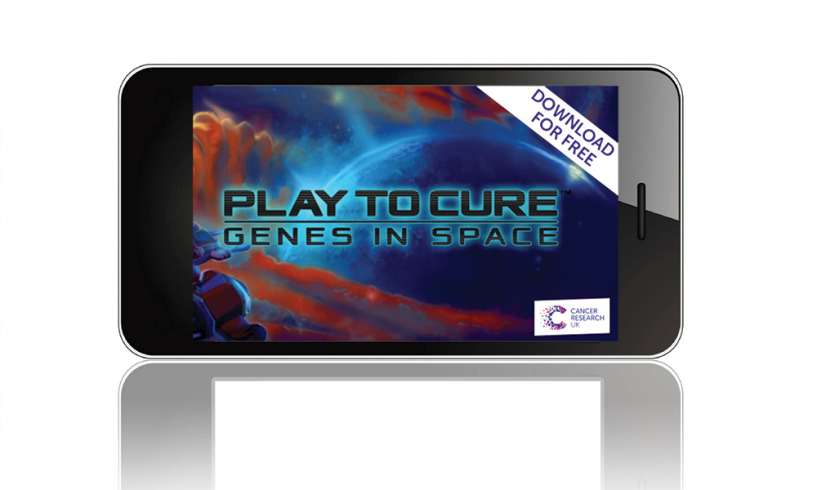Researchers at Cancer Research UK have reported that in one month, “citizen scientists” have used a new smartphone game, Play to Cure: Genes in Space, to analyze DNA data that would have taken a scientist six months to analyze manually. These figures follow the launch of the new smartphone game in February, in which gamers all over the world can play on their smartphones and simultaneously analyze cancer genetic data.
Finding patterns in genetic data is required to identify cancer-causing genetic mutations. Scientists have to do this by hand because computers are not precise enough, but the process has now quickened by the huge number of people throughout the world who are using the new game. According to Cancer Research UK, people playing the game have found 1.5 million classifications in just one month. These citizen scientists have collectively donated more than 53,000 hours, or 6.5 years, playing the game and analyzing about half the available data from the research. The researchers believe that harnessing the collective force of global gamers could have a massive impact on data processing and speed up life-saving research.
The game involves guiding a fast-paced spaceship safely along a hazard-strewn intergalactic assault course. The goal is to collect a valuable material called Element Alpha. By finding the best route to pick up the most Element Alpha, the participants are actually plotting a course through genuine DNA microarray data. Each section of gene data is traced by several different players to ensure accuracy. The researchers hope that many more people will play the game and help analyze research data at the same time.
Many scientists are trying to use computer software to sort through huge amounts of data generated by microarrays, but in many cases computers are not accurate enough and the human eye is still the best technology for picking up patterns. The concept of serious games that help solve problems has been around for a while. These include Cell Slider, which asks people to classify breast cancer samples to help scientists understand breast cancer risk and response to treatment, and Foldit, which allows players to create new shapes of proteins by randomly folding digital molecules on their computer screens.
In 2011, Foldit challenged players to produce accurate models of an AIDS-causing virus called retroviral protease. Scientists had been puzzled by the protein’s structure for more than a decade, but it took the online community just 10 days to produce the model, bringing researchers a step closer to finding a solution to AIDS.
Play to Cure: Genes in Space is available to download for free for anyone with an Android or Apple smartphone and requires no special skills or expertise to play. Visit the website or the Apple App Store or Google Play to download the game.






